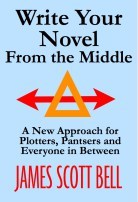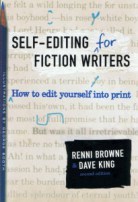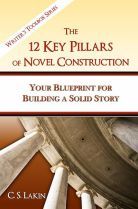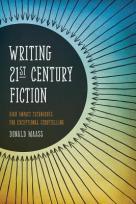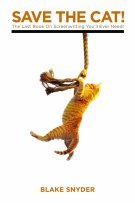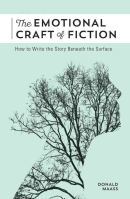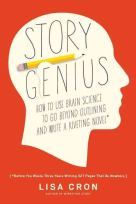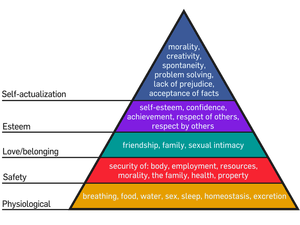Angela Ackerman's Blog: Writers Helping Writers, page 131
October 1, 2016
Character Motivation Thesaurus: To Rescue a Loved One
What does your character want? This is an important question to answer because it determines what your protagonist hopes to achieve by the story’s end. If the goal, or outer motivation, is written well, readers will identify fairly quickly what the overall story goal’s going to be and they’ll know what to root for. But how do you know what outer motivation to choose?
 If you read enough books, you’ll see the same goals being used for different characters in new scenarios. Through this thesaurus, we’d like to explore these common outer motivations so you can see your options and what those goals might look like on a deeper level.
If you read enough books, you’ll see the same goals being used for different characters in new scenarios. Through this thesaurus, we’d like to explore these common outer motivations so you can see your options and what those goals might look like on a deeper level.
Character’s Goal (Outer Motivation): To Rescue a Loved One From A Captor
Forms This Might Take:
A kidnapping
A cult
An abusive relationship
A prisoner of war
Forced slavery
Human trafficking
A hostage situation
Human Need Driving the Goal (Inner Motivation): Safety and Security
Methods for Achieving This Goal:
Plan an assault on captors in a kill-or-capture scenario
Enlist the help of professionals (police, a hired mercenary, criminals, etc.)
Plan an extraction (break and enter, grab and go)
Infiltrate the group and both escape unnoticed
A pay off (buying the loved one’s safety)
Obtain something important to the captor and force a trade (blackmail)
How the Character May Prepare for This Goal:
research the enemy to determine threat level and weaknesses
travel to the area one’s loved one is being held
arrange a meeting with law enforcement
hire professionals if needed
a reconnaissance of the location
obtain blueprints or fist hand knowledge of the site
track the captor’s movements and habits
invest in weapons and gear if needed
obtain funds needed to pay a ransom
buy information and access to the site (if possible)
create plans for subterfuge to gain access and an escape
obtain something to use for ransom (if applies)
Possible Sacrifices or Costs Associated With This Goal:
going deep into debt or bankrupt
being captured and tortured
getting others who are helping with the rescue killed
giving up control to someone else (police, someone in charge) who may or may not know what they are doing
keeping control and one’s decision leads t a costly mistake (such as an innocent being killed)
being injured or killed
making a mistake that leads to the loved one being injured or killed
Roadblocks Which Could Prevent This Goal from Being Achieved:
well armed captors
a turncoat on one’s team
being unable to raise funds for the ransom
having one’s loved one be moved somewhere beyond reach
being unable to secure the help one needs
inept officials in charge that screw things up
officials who have been bribed by captors
a system that doesn’t care or won’t help
being unable to act because of fear
being unable to obtain something suitable for blackmailing
Talents & Skills That Will Help the Character Achieve This Goal:
sharpshooting
high pain tolerance
self defense
strategic thinking
lying
knowledge of explosives
knife throwing
being mechanically-minded
survival skills
blending in
Possible Fallout if the Need Driving This Goal Is Not Met:
self-blame and depression
one’s life falling apart
relationships dissolving if one is blamed for the result (a marriage break up over the loss of a child, for example)
rejection by one’s family, leading to deeper loneliness
a thirst for revenge that will lead one down a dark path
possible suicide attempts if one is unable to forgive oneself for a perceived failing
Clichés to Avoid:
hiring a badass mercenary who is only in it for the money but comes to care for the main character and so goes above and beyond to save the victim
discovering the person needing to be rescued has orchestrated the whole thing our of hatred for the main character
Click here for a list of our current entries for this thesaurus, along with a master post containing information on the individual fields.
image: unsplash @ pixabay
Save
Save
Save
The post Character Motivation Thesaurus: To Rescue a Loved One appeared first on WRITERS HELPING WRITERS®.
September 29, 2016
Becoming Stronger Writers: The Best Ways We Can Elevate Our Writing Craft
 With it being September, and all our collective kiddos are firmly back in school, education is on my mind. Last week, my oldest headed out on his own post-secondary adventure to become an electrician, and it reinforced to me how important it is to always be stretching ourselves as writers.
With it being September, and all our collective kiddos are firmly back in school, education is on my mind. Last week, my oldest headed out on his own post-secondary adventure to become an electrician, and it reinforced to me how important it is to always be stretching ourselves as writers.
Now I do know writers who feel they know enough because they have read the books, done the courses, and written the books, but this isn’t my view. I can NEVER know enough.
Every day new writers are adding to the storytelling well. They are taking the information and theory currently out there and adding their own perspective, which creates further depth and insight. These writers then share their ideas in articles, lessons, craft books, and most importantly, through passion-filled fiction that spellbinds readers (and makes us writers all wish we had that sort of talent!)
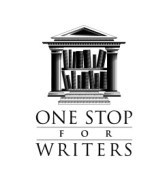 Becca and I are always trying to bring you content to help you grow as writers, and our mission at One Stop For Writers is literally to Elevate Your Storytelling. And if you follow me on Twitter, you know I love to curate great content.
Becca and I are always trying to bring you content to help you grow as writers, and our mission at One Stop For Writers is literally to Elevate Your Storytelling. And if you follow me on Twitter, you know I love to curate great content.
So in the spirit of always educating ourselves, I thought I’d mention just some of the sites I visit often for great articles that inspire and enlighten, and other ideas to help with self-improvement.
Terrific Writing Blogs
Now Novel: Great general writing topics, for all genres.
Anne R. Allen (with Ruth Harris) A deeper look at many aspects of writing and publishing.
Mythcreants This site tackles unique topics–a must-visit.
Helping Writers Become Authors Katie Weiland is an undisputed writing craft master.
Story Mastery Michael Hauge’s insight is unparalleled–I have learned a ton from him. Read his posts, buy his books, attend his workshops. Can’t recommend him enough.
Live, Write Thrive C.S. Lakin has a ton of knowledge, so visit and take your writing up a notch!
Writer Unboxed Great topics, from a variety of posters means many voices and options. Excellent site.
Jami Gold Jami knows her way around storytelling. Grab all her beat sheets!
September C. Fawkes September blogs deep writing craft. Visit and always learn something new.
Kristen Lamb Kristen has tons of writing knowledge and social media. A win-win site.
Better Novel Project Great breakdowns and craft advice. The cartoons are a fun bonus.
DIYMFA Another terrific site with some really rich articles on elements of storytelling.
Elizabeth S. Craig Elizabeth not only gives great craft advice–her Twitterific posts are a must-read.
Writers In The Storm This group blog mixes support, writing advice and publishing tips all rolled into one.
Top Writing Books
And here are some of the books I recommend most often:
And here are some books I am excited about releasing or are in my TBR pile:
Writing Conferences and Festivals
Recently I’ve posted in a few places about conferences, both on how to make the most of the conference experience, and also how to grow into the role of “professional author” when it comes to interacting with readers, giving talks and workshops, and selling books. Conferences can be a terrific opportunity to learn. Here’s a link that may help you find the right conference for you (updated each year).
Online Courses, Webinars & Recordings
Online courses and webinars can be an affordable way to fill gaps in your story knowledge. I have downloaded some of the lesson packets from The Margie Lawson Academy, and taken webinars through WANA International, and found both very valuable.
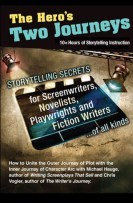 A recording I highly recommend is Michael Hauge’s Hero’s 2 Journeys. You get several hours with not just one world-renowned story expert, but two: Michael Hauge and Chris Vogler. They both bring great story structure and character motivation information to the table using the famous Hero’s Journey and 6-Stage Plot Structure methodology. Worth every penny.
A recording I highly recommend is Michael Hauge’s Hero’s 2 Journeys. You get several hours with not just one world-renowned story expert, but two: Michael Hauge and Chris Vogler. They both bring great story structure and character motivation information to the table using the famous Hero’s Journey and 6-Stage Plot Structure methodology. Worth every penny.
 A new course that costs more but offers great value is Author Accelerator’s Story Genius, which is a 10-week course that teaches you how to write a story that the reader’s brain is hardwired to enjoy. Taught in tandem by two excellent writing coaches (Jennie Nash and Lisa Cron) you’ll learn how to drill down to the essence of your story to deliver a meaningful story that readers crave. There’s a self-study option too, if that’s your learning style preference.
A new course that costs more but offers great value is Author Accelerator’s Story Genius, which is a 10-week course that teaches you how to write a story that the reader’s brain is hardwired to enjoy. Taught in tandem by two excellent writing coaches (Jennie Nash and Lisa Cron) you’ll learn how to drill down to the essence of your story to deliver a meaningful story that readers crave. There’s a self-study option too, if that’s your learning style preference.
I know C. S. Lakin also teaches online writing craft courses from time to time, and while I have not taken any, her writing books are excellent, and she’s our editor for the Writers Helping Writers books, so I don’t think you could go wrong checking her out either.
(Note: I’m not being compensated in any way by these instructors.)
Writing Retreats
 One more thing I’d thought I’d mention, just in case it’s in your wheelhouse: writing retreats. This is something I have always wanted to do, and I think most writers would as well, but costs is always a factor. Often local writing groups host these, so look around at your own community as the prices may be more affordable.
One more thing I’d thought I’d mention, just in case it’s in your wheelhouse: writing retreats. This is something I have always wanted to do, and I think most writers would as well, but costs is always a factor. Often local writing groups host these, so look around at your own community as the prices may be more affordable.
Or, create your own. I have a mini one planned in a few weeks time, and I can’t wait. I’m sharing costs with a few local writers and we’re heading off to the mountains for the weekend. It will be great to get together, talk writing, brainstorm ideas and learn from each other.
If you’d like to do a retreat that is a bit longer, you may wish to look into Cruising Writers. Not only can you book a week-long writing cruise where you learn from great speakers and get face time with editors and agents, you will find inspiration and fill your creative well. USA/NYT Bestselling Author Steena Holmes gave one of these retreats a try and wrote a terrific article on it: Writing Cruise = Best Career and Writing Decision Ever.
Now, if you are up for a writing cruise…maybe we could go together!
 I’m thrilled to announce that I am locked and loaded for the September 2017 Western Carribean Cruise, and will be teaching writers how to go further and deeper with their description. I would absolutely love it if some of our blog readers joined up! Lisa Cron will also be there, and as she’s completely wired into the brain science of storytelling, writers will learn how to drill into the essence of what their novels are about.
I’m thrilled to announce that I am locked and loaded for the September 2017 Western Carribean Cruise, and will be teaching writers how to go further and deeper with their description. I would absolutely love it if some of our blog readers joined up! Lisa Cron will also be there, and as she’s completely wired into the brain science of storytelling, writers will learn how to drill into the essence of what their novels are about.
 If you think spending a week with me and honing your craft sounds like fun, I hope you’ll check it out.
If you think spending a week with me and honing your craft sounds like fun, I hope you’ll check it out.If you prefer land over sea, they also have some amazing trips coming up, like a week long stay in France in a wine Chateau with Margie Lawson. Now that would also be amazing.
Seeing as both of these aren’t until 2017, there’s time to save up. 
September 27, 2016
Become a Story Genius: How Your Character’s Misbelief Drives The Plot
We’re welcoming story coach Lisa Cron to the blog today. Her new book, Story Genius, released not long ago and is traveling toward me via drone, or spaceship, or whatever thing Amazon’s using these days. I can’t wait for it to arrive. 
September 24, 2016
Character Motivation Thesaurus Entry: Having a Child
What does your character want? This is an important question to answer because it determines what your protagonist hopes to achieve by the story’s end. If the goal, or outer motivation, is written well, readers will quickly identify what the overall story goal’s going to be; this will better enable them to root for the character because they’ll know exactly what he’s trying to achieve. But how do you know which outer motivation to choose?
If you read enough books, you’ll see the same goals being used for different characters in new scenarios. Through this thesaurus, we’d like to explore these common outer motivations so you can see your options and what those goals might look like on a deeper level.

Courtesy: Pixabay
Character’s Goal (Outer Motivation): Having a Child
Human Need Driving the Goal (Inner Motivation): Love and Belonging
Methods for Achieving This Goal:
Conceiving a child with a partner
Becoming artificially inseminated (if one is single)
Undergoing fertility treatments
Adopting a child
Becoming a foster parent
How the Character May Prepare for This Goal:
Reading up on pregnancy and parenting
Giving up things that could harm an unborn child or decrease one’s chance of conceiving (cigarettes, alcohol, certain medications, caffeine, heavy weight lifting, boating, etc.)
Getting into good physical shape
Convincing one’s partner that having a child is a good idea
Sabotaging one’s method of birth control (if one’s partner isn’t on board)
Tracking one’s ovulation cycle and scheduling sexual encounters accordingly
Seeing a fertility doctor
Researching and choosing a sperm donor, egg donor, or surrogate
Saving money or adjusting one’s budget to account for fertility treatments or adoption fees
Starting the process to become a foster parent
Preparing one’s home for home visits from social workers
Researching adoption agencies and adoptive children
Joining online groups and message boards with other like-minded people
Possible Sacrifices or Costs Associated With This Goal:
Going into debt
Putting off vacations and high-end purchases in order to afford fertility treatments or adoption fees
Changing one’s standard of living so one can afford the associated financial costs
Replacing sex as a pleasurable experience with sex that is purely clinical and a means to an end
Losing a spouse or partner who doesn’t want to have children
Losing friendships or family relationships when other people don’t agree with one’s methods of becoming pregnant
Sacrificing one’s career in order to have a family (settling for a position with less time restraints or stress, being passed over for a promotion, not being able to pursue the career one would most like to have)
Risking one’s health if one has existing problems that a pregnancy or birth could make worse (a mental illness requiring one to stop taking one’s medication if one becomes pregnant, heart problems, etc.)
Giving up or postponing other goals (running a marathon, competing in the Olympics, taking a once-in-a-lifetime trip that occurs during one’s fertility treatments, dropping out of school, etc.)
Roadblocks Which Could Prevent This Goal from Being Achieved:
Infertility
Health conditions that could make a pregnancy or birth difficult
A spouse or partner who doesn’t want children
Moral objections to the methods one would have to employ to become pregnant (having sex outside of marriage, fertility treatments where many eggs are fertilized and the remainders are discarded, being inseminated with a stranger’s sperm, etc.)
Financial limitations
A mental illness or past criminal activity that keeps one from being able to adopt or foster a child
A social worker with an axe to grind
An inept fertility doctor
Talents & Skills That Will Help the Character Achieve This Goal:
A knack for making money
High Pain Tolerance
Being charming and persuasive
Being able to read people
Possible Fallout if the Need Driving This Goal Is Not Met:
Heightened feelings of loneliness and unfulfillment
Growing apart from other couples one’s age who have families
Tension with one’s partner that could lead to a breakup
Self-doubts; wondering if there’s a reason one isn’t able to have a child
Fear of growing old alone
Resentment of other parents
Depression
Clichés to Avoid:
External stressors tearing apart a couple during the adoption process, forcing one of them to move forward and adopt on his/her own
For help on any of these fields, visit our Master Post.
Save
Save
Save
Save
Save
The post Character Motivation Thesaurus Entry: Having a Child appeared first on WRITERS HELPING WRITERS®.
September 21, 2016
Change of Plans: Introducing The Character Motivation Thesaurus
Recently Becca and I announced that our next thesaurus would be the Human Needs Thesaurus. And people got excited, and why the heck not, because the very fiber of a story is indeed the need that drives your character to act. We were excited too…until we worked up our template and realized what we really wanted to talk about was Needs and Goals, and that our original thesaurus idea was too narrow. So, we stepped back and tried again, and POW, came up with something amazing.
The Character Motivation Thesaurus
 This thesaurus will help you unravel some of your biggest story questions by specifically focusing on what your character wants (outer motivation), why they want it (inner motivation), how they might achieve their goal, and what stands in their way.
This thesaurus will help you unravel some of your biggest story questions by specifically focusing on what your character wants (outer motivation), why they want it (inner motivation), how they might achieve their goal, and what stands in their way.
We will look at common story goals most often portrayed in books and film that center around fulfilling the protagonist’s missing Human Need, the common ingredient in any change arc. Here are the areas each entry will cover:
A Character’s Goal (Outer Motivation)
All stories feature a protagonist with a goal, something they are determined to achieve by the story’s end. This story goal matters to them; it’s personal in some way. Every action, choice, and sacrifice is made with the singular focus of achieving the mission. The goal might be to bring a killer to justice, reach safety when one is lost in the woods, or find one’s birth parent. Whatever shape it takes, the goal is tangible.
The Human Need Driving the Goal (Inner Motivation)
When it comes to the change arc, a meaningful goal must have a WHY attached to it: why does the character want to achieve this particular goal? The why is what interests us as readers, because the why is an underlying universal human need that drives behavior.
According to famed psychologist Abraham Maslow, all individuals are driven by needs that fall into five basic categories:
If one of these needs is lacking, it creates a void—one that the character will go to great lengths to fill.
For example, if your character is safe, secure, and loved, yet craves the recognition and esteem of others, he will grow increasingly anxious and dissatisfied. Once this reaches a critical point, he will feel DRIVEN to make a change. His need for esteem and recognition will push him to act, and direct him toward a very specific, tangible goal. Perhaps he quits his job to go back to school and obtain a degree. Maybe he decides to fight his biggest rival for the promotion he knows he deserves. Or, perhaps he makes a plan to leave a toxic parental relationship that is rife with mental and emotional abuse.
These needs are universal, meaning they apply to everyone. Readers will understand the character’s yearnings for something more and to feel complete. This sets them up to care about the protagonist and want them to succeed.
Needs are powerful, and can alter a character’s personality or even force him to the edge of his own moral code (and sometimes beyond). Knowing which needs your character is missing will let you know how that lack will affect her. Like the all-important picture on the cover of a jigsaw puzzle box, this knowledge will help you piece together many other related elements that are important to her personality and your story.
Methods for Achieving This Goal
Whatever the goal is, your protagonist can go about trying to achieve it in different ways. For instance, a heroine with the goal of having a child could accomplish this by trying to conceive with her partner, but she could also pursue artificial insemination, undergo fertility treatments, adopt, or become a foster parent.
The route your character takes will depend largely on her personality and life circumstances; having a list of choices will help you to brainstorm a path that works for your story while sparking ideas for possible roadblocks, obstacles, complications, and dangers that might stand in her way.
How the Character May Prepare for This Goal
To make our story even more compelling, our characters should be somewhat unsuitable for what lies ahead. Both inwardly and outwardly, they will need to make changes: gaining new knowledge, seeking out help, training, learning new skills, shedding bad habits, or otherwise preparing themselves to achieve their goal.
Possible Sacrifices or Costs Associated with This Goal
For a goal to be meaningful, it often comes at a cost. Change is never easy, and moving toward something also means moving away from something else. The character may have to give up certain comforts, freedoms, habits, and fears if he is to move forward toward a new reality.
Roadblocks Which Could Prevent This Goal from Being Achieved
Our job as writers is to make sure whatever our protagonist wants, they have to fight for it. Conflict & tension are the butter we spread on storytelling bread, so for each goal, we’ll look at possible friction points (people and things) that can be used to block them. These roadblocks can also come from within, such as fears and insecurities that are holding your protagonist back, or moral lines that challenge their commitment to the goal.
Talents & Skills That Will Help the Character Achieve This Goal
Who your character is deep down is an important piece of the puzzle, because special skills and talents can help them with goal achievement. Listing out certain skill sets tied to a goal will provide ideas for possible talents you may wish to give your character so they can overcome the difficulties ahead.
Possible Fallout if the Need Driving This Goal Is Not Met:
Inner motivation (needs) and outer motivation (the goal) are bound together, and making the decision to chase a goal takes courage and a leap of faith. To make the story as compelling as possible, something needs to be on the line. Readers need to know what is at stake…what will happen if the protagonist fails to achieve his goal, and his critical need goes unmet.
Clichés to Avoid
Finally, as you can imagine when dealing with common goals, there may be some clichés all writers should be aware of. Above all, we want the story to be fresh and innovative. Knowing what the clichés are will help us think outside the box when it comes to a goal, giving readers a satisfying and rich ride.
Join us Saturday as we launch the first entry of this thesaurus!
Save
Save
Save
Save
Save
Save
Save
Save
Save
Save
Save
Save
The post Change of Plans: Introducing The Character Motivation Thesaurus appeared first on WRITERS HELPING WRITERS®.
September 20, 2016
What’s in a (Character’s) Name?
For some of us, coming up with names is easy—just pick one that sounds right, or one you’ve been in love with forever. And sometimes it truly is that easy. But what if you want your characters’ names to be more meaningful, to be a better fit for your story? Olga Kuno’s got some great ideas on how to come up with just the right names for your cast members.

Courtesy: Jonathan Rolande @ Creative Commons
You’re about to start writing a new novel. Maybe you’ve already carefully developed a plan for each chapter. Maybe you have a plan for a couple of chapters only and, at this stage, have no idea what’s going to happen afterwards. In any event, there’s something you need to know from the very beginning: the names of your important characters.
If you’re writing a realistic novel with the plot unfolding in the actual world, in a specific country at a specific time, this imposes at least some limitations, but the range of names you can choose from is still wide. But what if you’re working on a fantasy or sci-fi novel, describing events that are taking place in an imaginary world? In that case, the sky’s the limit. You’re free to choose any name of any nationality that has been used at any period. Moreover, you can even invent a name of your own.
Coming up with just the right name can be daunting. I’d like to share some ideas on how to simplify the process.
Meanings
I suppose “meaning” is the most obvious reason to choose a particular name. After all, names are derived from words that are meaningful in some language or other.
‘My name is Alice, but —’
‘It’s a stupid name enough!’ Humpty Dumpty interrupted impatiently. ‘What does it mean?’
‘Must a name mean something?’ Alice asked doubtfully.
‘Of course it must,’ Humpty Dumpty said with a short laugh: ‘my name means the shape I am — and a good handsome shape it is, too. With a name like yours, you might be any shape, almost.’
Through the Looking Glass, Lewis Carroll
Humpty Dumpty isn’t quite right, but in literature, it’s definitely possible to give one’s heroes names that say something about their character. Consider America Singer, the protagonist of The Selection by Kiera Cass. Her surname says something about her: she’s a musician and a singer. Yet another example is Mr. Knightley from Jane Austen’s Emma. It’s clear to many English-speaking readers that this name emphasizes the character’s nobility.
Sometimes, the meaning can even come from another language. Continuing the topic of music, one of the major heroes in Oksana Pankeeva’s Russian fantasy series is known under the (fake) name of Cantor. In Spanish, the corresponding word means ‘singer’, and indeed, the character was a singer in the past.
Connotations
A name may also obtain content through the connotations it invokes. This happens when it’s identical or similar to the name of a well-known literary or mythological character. For instance, it’s hardly possible to read “Bridget Jones’s Diary” without associating Mark Darcy with Jane Austen’s Mr. Darcy (and when watching the movie, the association becomes even stronger, for obvious reasons!). Indeed, the two characters have certain qualities in common.
Geographical Inspirations
Associations may arise not only with characters but also with the real world. Getting back to America Singer, her first name is obviously identical to a geographical one. This is purposeful, since the heroine brings in certain values that play an important role in the United States but have largely been forgotten and abandoned in Illéa.
Geography can also play a part in a character’s name when the sound of it reminds readers of a particular culture. An invented name that ends in -slav or -mir—Jaroslav, Vladimir, Miromir—will bring to mind the Slavs and the rich culture surrounding them. Leigh Bardugo’s Grisha series is a good example of this. With a main character named Alina Starkov and events occurring in places like Keramzim and Ravka, the names are perfect for her story set in an alternate pre-revolution Russia.
Playing Games With Names
Yet another possibility is to think of a name that you can mess around with. A well known example is young Voldemort from the Harry Potter books. Tom Marvolo Riddle is an anagram for “I am Lord Voldemort.” And, obviously, Riddle also holds meaning. For a different example, consider Karina Dёmina and her novel The Bride. The character has two personalities: Tori and Hilda. So it makes sense for the author to have chosen the name Tornhild, where both personalities are represented.
These are just a few suggestions which may be helpful in resolving the difficult task of name selection. But then, it’s absolutely fine to choose a name because we like the way it sounds. What methods have you used for picking the right names for your characters?
 Born in Moscow and having left Russia in 1991, Olga Kuno has lived in Europe, Asia and America. Having completed her Ph.D. in linguistics, she started writing fantasy romance novels. Today she is both a lecturer in linguistics and a Russian fantasy writer who tries hard not to mention princes, dragons and magicians in her scientific articles. Olga has published 13 fantasy novels in Russian (however scary that number may seem!). In June 2016, her novel “Half a Step Away from Love” was for the first time electronically published in English translation. Her interests include British folklore, linguistic analysis of humor and animal communication.
Born in Moscow and having left Russia in 1991, Olga Kuno has lived in Europe, Asia and America. Having completed her Ph.D. in linguistics, she started writing fantasy romance novels. Today she is both a lecturer in linguistics and a Russian fantasy writer who tries hard not to mention princes, dragons and magicians in her scientific articles. Olga has published 13 fantasy novels in Russian (however scary that number may seem!). In June 2016, her novel “Half a Step Away from Love” was for the first time electronically published in English translation. Her interests include British folklore, linguistic analysis of humor and animal communication.
Road Trip
Angela is over at Writers In The Storm talking about the transition between “writer” and “author,” and the learning curve involved. Feel free to stop by. 
September 17, 2016
Critiques 4 U!
Ok. I’m sure that some of you are a leetle confused to see a critique contest post going out. I mean, it’s SATURDAY, and Saturdays at Writers Helping Writers has always meant thesaurus day. And last week we let you know about a new thesaurus that would be rolling out this week.
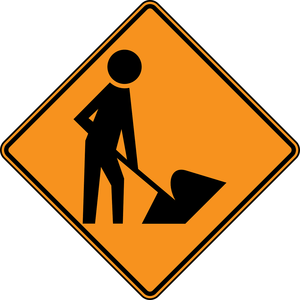
Courtesy: Pixabay
But it’s funny how things work. Angela and I have both been feeling like there was something off about the template we had put together for our new project. A driving force behind what we do is wanting to provide you with content that is needed, practical, and easy for you to both understand and apply. And over the past week, we both realized that what we’d come up with just wasn’t clear enough for our liking. So while we really wanted to stick to our guns and roll out the new thesaurus today, we’ve decided to take a bit more time on it to make sure it’s as good as it can be.
Meanwhile, we didn’t want to leave you empty handed while our thesaurus idea is under construction. And since we haven’t run a critique contest yet this month, we figured it would be a good idea to do it now. Which means
It’s Critiques 4 U Time!
If you’re working on a first page and would like some objective feedback, please leave a comment that includes:
1) your email address. Some of you have expressed concern about making your email address public; if you’re sure that the email address associated with your WordPress account is correct, you don’t have to include it here. But if you do win and I’m unable to contact you through that email address, I’ll have to choose an alternate winner.
2) your story’s genre (no erotica, please)
ONLY ENTRIES THAT FOLLOW THESE INSTRUCTIONS WILL BE CONSIDERED
Because it’s the weekend and people aren’t online as much, this contest will run for two days instead of the typical 24 hours. Three commenters’ names will be randomly drawn and posted on Monday. If you win, you can email me your first page and I’ll offer my feedback. Best of luck!
The post Critiques 4 U! appeared first on WRITERS HELPING WRITERS®.
September 14, 2016
A Storyteller’s Swiss Army Knife? The Setting
 Writing the Urban and Rural Setting Thesaurus books taught Becca and me something big: that the Setting really is the Swiss Army Knife of Storytelling.
Writing the Urban and Rural Setting Thesaurus books taught Becca and me something big: that the Setting really is the Swiss Army Knife of Storytelling.
Whaaaat, you say?
It’s the truth.
Check out all it can do:
create conflict or tension
foreshadow a coming event
encourage an emotion-driven action or choice
remind a character of the past (good or bad)
poke at an old wound
challenge the hero to face his fears
recreate a wounding event so the hero can navigate it successfully & let go of past pain
show or reinforce the story stakes
characterize one or more characters
display symbolism or motifs that reinforce a deeper message or meaning
reinforce a specific mood
help steer the plot
test through obstacles and setbacks
give the setting an emotional value & deploy emotional triggers
deliver important backstory
(click here to save this as a checklist)
Are you suitable impressed? I hope so!
The setting is versatile. It allows us to show, not tell in so many important ways.
Learning how to use it fully is one of the best things we can do to elevate our writing. 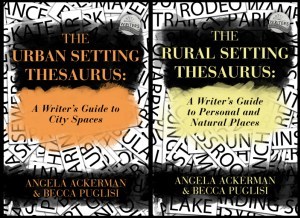 To see an example of setting in action, pop by Seekerville to find out How The Setting Can Steer Your Plot. There might just be a giveaway involved…*wink*
To see an example of setting in action, pop by Seekerville to find out How The Setting Can Steer Your Plot. There might just be a giveaway involved…*wink*
And, if you are rounding the horn into Fall with plans to give your writing career a boost by attending a writing conference, stop by Writers Digest where I show you how to get more out of your conference pitches, workshops and networking opportunities by thinking like an extrovert…even though you happen to be an introvert.
I hope everyone is back in the groove of writing now that September is here and those precious bundles of ours are back at school. Becca and I are climbing back to full speed here at WHW, rolling out a new thesaurus on Saturday, planning out some amazing new tools at One Stop For Writers with the talented Lee Powell, and plotting our next book, The Emotional Wound Thesaurus.
Here’s to what comes next–happy writing, all!
Save
Save
Save
Save
Save
Save
Save
Save
The post A Storyteller’s Swiss Army Knife? The Setting appeared first on WRITERS HELPING WRITERS®.
September 13, 2016
Hunting Down Story Holes Using a Novel Journal
Hi everyone–I’m happy to welcome author David Stafford to the blog today as he’s tackling something we all wrestle with at some point: Story Holes. Here’s some great advice on how to defeat Story Holes, and a list of the areas they are often found.
 Plot holes are disastrous. So are inconsistencies in your characters and setting.
Plot holes are disastrous. So are inconsistencies in your characters and setting.These gaps in your story’s logic, or “Story Holes,” invite the reader to quit. They break rules and seriously jeopardize your chances of converting readers into loyal followers and future buyers.
Finding “Story Holes” can be difficult because we’re often overwhelmed by all the elements in our stories, especially if they’re novel-length. Keeping track of details is incredibly important, especially as we work scene-to-scene.
There are common spots where Story Holes like to lurk, so ask yourself questions to ensure the story’s logic holds up.
Seasons: When does each chapter take place? How do you signal the change in seasons? Is the geographic location of your setting stated or easily discerned? Does the temperature/weather match the stated season?
Weather: Are you consistent within chapters or periods of time (It’s raining on page 1 and not instantly sunny on page 3)? Do scenes begin and end with seemingly unannounced changes in the forces of nature?
Time of Day: Does time pass with realistic pacing and flow? If it does, do scenes focus on the important, relevant scenes? Does dialogue that takes 5 minutes to read consume 5 hours of story-time?
Location Layout: Does your story’s setting have a logic to its layout? Will readers be able to draw a map of it based on the details you provide? Is there a balance of geographic terms (north, south, east, west) with imagery? Is this layout consistent throughout the entire story? Does it take an appropriate amount of time to move from one location to another? For example, characters shouldn’t be able to drive across Los Angeles in ten minutes.
Setting Status: Have elements of the setting changed? Has something been destroyed, altered, or improved? Keep detailed notes in your novel journal on how the setting has changed during each chapter’s events.
Different Laws of Physics: Your story may contain different laws of physics, including magic, supernatural creatures, super powers, and so on. However, each of these creations o needs its own internal set of rules. As you write, put these down in writing as a constitution for you to adhere to. Use it when you check for Story Holes to see if character powers have suddenly changed for no reason, or if the rules of your world are being constantly broken. There must be a logic that your reader can follow, anticipate, and own. If you break your own rules, the reader will have no reason to respect them.
Story Holes From Editing: Have you been rearranging chapters? If so, you need to reread the entire section in which you made the switches. Better yet, have someone else read them because his/her unfamiliar eye will be able to spot the subtle ways that this rearrangement has altered the logic of your story.
Changing the Cause of an Action: As you revise, you will often alter a character’s motivation for making a choice. This will change the flow of any dialogue or thought-process in the chapter. I noticed this Story Hole when I edited my protagonist’s goal in early chapters. Large portions of dialogue had to be rewritten so that what he said was in alignment with his new, updated goal.
Character Core Qualities: Do characters maintain their unchanging qualities throughout the story (paralyzed characters don’t suddenly “walk away,” claustrophobic characters don’t suddenly enjoy elevators).
Character Traits: Character traits are more fluid than Core Qualities, but still require internal logic that’s tied to plot. Usually, for a Character Trait to change, the change must occur as a result of an action with significant stakes. If beta readers are questions “Why” characters do things, or “How” they gain or lose or alter specific traits, you may have forgotten to earn that change with a bold action in the story.
With all these details floating around, how can you hope to keep track of them all?
Answer: A Novel Journal.
 I created a chart for my novel, The Bean of Life, and used the following “fields” (or columns) to diagram the details of each chapter:
I created a chart for my novel, The Bean of Life, and used the following “fields” (or columns) to diagram the details of each chapter:
Chapter # and Working Title
Season (Winter, Spring, Summer, Fall) and Time of Day
Days/Weeks/Months since prev. chapter
Word count/Budgeted word count (in italics)
Character notes (New characters, any changes, major actions, major declarations)
Setting notes (changes, alterations, enhancements)
Plot Notes (plans or observations on the draft for me to use later)
Color-code based on its part in the book, or “tension” in a series of chapters that vary in intensity
With a tool like this in place, it will be easy to track your story’s vital details and hunt down Story Holes with incredible precision and efficiency. Here’s a template you can use!
TIP: When you save your Novel Journal, give it a name like “NOVEL TITLE_PLAN” and put it in the same folder as your manuscript.
Remember, no one gets a story perfect the first time. Prepare for this by investing time in your Novel Journal and reviewing it after each writing session. As your hunting skills get sharper, Story Holes will disappear from your prose until it’s a structural masterpiece.
(And readers will LOVE you for it!)
 David H. Safford is the author of The Bean of Life, the story of a man who decides to save the world with coffee. Read a free preview or get an early-access copy here before the September 20th launch.
David H. Safford is the author of The Bean of Life, the story of a man who decides to save the world with coffee. Read a free preview or get an early-access copy here before the September 20th launch.
When he’s not brewing his next pot of coffee, David coaches writers and travels to mountainous realms where his soul can finally rest. You can find him on twitter, too!
Confession time: What was your biggest logic gaff? Tell us about a story hole you discovered and how you fixed it!
Image 1: Efraimstochter @Pixabay
Save
Save
Save
Save
Save
Save
The post Hunting Down Story Holes Using a Novel Journal appeared first on WRITERS HELPING WRITERS®.
September 10, 2016
Introducing…the Human Needs Thesaurus!
When it comes to creating realistic and believable characters, its important to recognize the forces that drive them—and there are many: emotional wounds, upbringing, morals and values, peer influences, genetics, and the list goes on. In an effort to continue to bring you helpful and practical content, we’ve decided that our next Writers Helping Writers thesaurus will be all about one of those very important factors: human needs. Our hope is that this thesaurus will help you identify the need(s) that your character is missing so you can determine how this lack will affect his personality, choices, and overall goals within your story.
What are Human Needs and why do they matter?
According to famed psychologist Abraham Maslow, all individuals are driven by needs that fall into five basic categories:
These needs are universal, meaning they apply to everyone. If one of these needs is lacking, it creates a void—one that the character will go to great lengths to fill. This lack, and the desperate desire to fill it, can dramatically impact a character in a number of ways.
For example, if your character is safe, secure, and loved, yet craves the recognition and esteem of others, certain character traits may develop, such as determination, perseverance, and efficiency.
When needs are not met, anxiety and dissatisfaction arise, and changes in behavior patterns can occur. Take a character who has not eaten for days: her physiological needs are going unmet. A normally kind and law-abiding woman may resort to stealing so she can feed herself. Alternatively, she might turn to prostitution or selling drugs as a way to support herself. Driven by desperation, behaviors that are not normally part of her personality take over. As you can see from these examples, core needs are even powerful enough to influence or alter one’s moral compass.
This is why needs are so important, because they will have a big impact on who your character is and why she does what she does. Knowing which needs your character is missing will let you know how that lack will affect her. Like the all-important picture on the cover of a jigsaw puzzle box, this knowledge will help you piece together many other related elements that are important to her personality and your story.
To this end, the Human Needs Thesaurus will dig into various common needs and ways your character might try to go about meeting them. We’ll also explore the following elements that relate to those needs, giving you more options for getting to know your characters and giving your stories a solid foundation.
Stakes: Every good story must have something at stake, and many times, the stakes are tied to a missing need. In A Few Good Men, Daniel Kaffee is a lawyer who plea bargains all his cases. He does this because he’s afraid of trying a case in court and never being able to measure up to his father’s standard of excellence. While he seems content, deep down, he’s dissatisfied because his esteem and self-actualization needs are missing. What’s at stake for him if he doesn’t meet those needs? A life of mediocrity never lived to his full potential, and the knowledge that his fear would always keep him from being the best version of himself. Knowing the need your character is missing will help you identify what’s at stake should he fail to meet that need. In turn, you can then let your reader know why it’s so important for your character to succeed and give them a reason to root for him.
Emotional Wounds: Many times, whatever is missing is tied to a past negative event. If you want a character that is well-rounded and makes sense to readers, it’s important to know what those past events are so you can determine how it will affect him in the present-day of your story. (For a thorough tutorial on how wounds can impact a character, check out this post, and this one.) If you know what need your character is missing, you can then identify a possible emotional wound that may be contributing to that lack, which will help you better figure out who he is at his core so you can write him more effectively.
Habits, Quirks, and Behaviors: As I mentioned earlier, a missing need can have a huge impact on a character’s behavior. In Kaffee’s case, he settles for mediocrity, plea bargaining his cases so he can establish a name for himself as a lawyer but in a different way than his father did; this way, he can maintain a measure of the esteem that he craves. He also focuses on lighthearted hobbies (playing baseball and drinking beer with his buddies) so he won’t be expected or asked to take on anything too heavy that could result in failure, which would negate what little esteem he has. Habits and behaviors will often stem directly from a missing need and its impact on a character’s personality and psyche. Knowing which needs are missing can be hugely beneficial in helping you determine how your hero will respond in a given situation.
Character Traits: When your character is struggling to meet a missing need, certain traits will either help him or hinder him. Someone missing the belonging need may want nothing more than to fit in with a group. Beneficial traits, such as charm, courtesy, and humor can help him to meet that need. Others—neediness, abrasiveness, timidity—will make it difficult. It’s usually a good idea to give your protagonist a mix of traits so he can get what he’s after, but without it being too easy. Knowing your character’s need beforehand can help you figure out which traits he should have. Our Positive and Negative Trait Thesaurus books offer more information on the formation of these traits. You can also see a thorough list of possible traits for your character at One Stop For Writers.
Goals: Most stories are about a character trying to meet a need by striving toward a certain goal. Kaffee ends up defending his high-profile murder case in the courtroom because he wants to live up to his full potential, meeting both his needs for self-actualization and self-esteem. Katniss Everdeen must win The Hunger Games because her physiological need for survival has been threatened. An Officer and a Gentleman‘s Zack Mayo wants desperately to belong, so he sets out to become an officer in the US Navy. Needs drive story goals. If you know what needs are missing in your character’s life, you can brainstorm overall goal ideas to find the one that perfectly suits both your hero and your story.
As you can see, basic human needs can be incredibly formative for your character and your story. Hopefully, this thesaurus will help you become more familiar with the role needs play and help you to brainstorm potential ideas that will strengthen your stories. Enjoy!
The post Introducing…the Human Needs Thesaurus! appeared first on WRITERS HELPING WRITERS®.
Writers Helping Writers
- Angela Ackerman's profile
- 1014 followers


